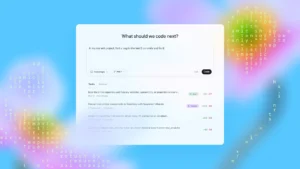What Is OpenAI Codex? Your Guide to the AI Coding Agent Revolutionizing Programming
The world of software development is changing — fast. What once required hours of manual coding, debugging, and documentation is now being transformed by intelligent AI systems. One of the most exciting breakthroughs in this space is Codex, an AI coding agent developed by OpenAI. But what exactly is Codex? How does it work, and why should developers, businesses, and tech enthusiasts care? Let’s dive in.
What Is OpenAI Codex?
OpenAI Codex is an advanced AI model designed to understand and generate code in multiple programming languages. Think of it as an intelligent coding assistant that can write, explain, and even troubleshoot code based on natural language instructions. Whether you’re a beginner looking to build your first app or a seasoned developer working on a complex system, Codex can significantly boost your productivity.
Codex is the engine behind GitHub Copilot — the popular AI pair programmer. It supports a wide range of languages including Python, JavaScript, TypeScript, Ruby, Go, and many more.
How Does Codex Work?
At its core, Codex is a descendant of GPT (Generative Pre-trained Transformer) models, trained not just on natural language data but also on billions of lines of publicly available source code from GitHub and other sources. This dual training allows Codex to understand both human language and programming syntax.
Here’s what it can do:
- Autocompletion: Predict the next line or block of code as you type.
- Natural language to code: Turn instructions like “create a function that sorts a list” into actual code.
- Explain code: Break down what a chunk of code does — perfect for learning or documentation.
- Fix bugs: Detect errors and suggest fixes or improvements.
Why Codex Is a Game-Changer
Codex is more than just a fancy autocomplete tool. Here’s why it’s making waves:
- Bridging the Gap Between Humans and Code
Codex makes programming more accessible. If you can describe what you want in plain English, there’s a good chance Codex can help you build it — no deep coding knowledge required.
- Supercharging Developer Productivity
Imagine offloading routine tasks like writing boilerplate code or unit tests. Developers can focus on solving problems instead of wasting time on repetitive work.
- Learning and Collaboration
Codex acts like a mentor for junior developers — offering suggestions, explaining code, and teaching best practices on the go.
- Rapid Prototyping
Startups and indie developers can use Codex to quickly turn ideas into prototypes, saving time and resources.
Real-World Applications
Here are some practical use cases where Codex shines:
- Building web apps using HTML, CSS, and JavaScript with real-time suggestions.
- Automating data analysis in Python or R.
- Writing infrastructure code for cloud platforms like AWS or Azure.
- Generating SQL queries from natural language.
- Creating educational tools that teach people to code in a conversational way.
Limitations and Ethical Considerations
As powerful as Codex is, it’s not perfect. Here are a few things to keep in mind:
- It can produce buggy or insecure code if not monitored.
- It doesn’t understand context like a human, especially in complex or domain-specific tasks.
- It may generate code with licensing issues, depending on the source of its training data.
That’s why human oversight is essential — Codex is a tool, not a replacement for experienced developers.
The Future of Coding with AI
Codex is just the beginning. As AI continues to evolve, we’re moving toward a future where natural language and code seamlessly blend. Developers might spend more time designing and thinking creatively while AI handles the heavy lifting under the hood.
Whether you see it as a co-pilot, assistant, or supercharged debugger, one thing is clear: Codex is reshaping how we write and interact with code.
Final Thoughts
OpenAI Codex is opening up new possibilities for both developers and non-developers alike. By lowering the barrier to entry and accelerating the development process, it’s helping more people build software than ever before. And while it’s not without its flaws, the potential is undeniably exciting.
Are we ready for a future where coding is as simple as talking to an AI? With Codex, we might already be living in it.




